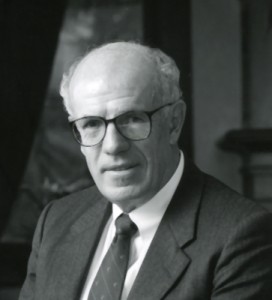
Proposition 215, or the Compassionate Use Act of 1996, is a California law permitting the use of medical cannabis despite marijuana's lack of the normal Food and Drug Administration testing for safety and efficacy. It was enacted, on November 5, 1996, by means of the initiative process, and passed with 5,382,915 (55.6%) votes in favor and 4,301,960 (44.4%) against.
Palliative care is an interdisciplinary medical caregiving approach aimed at optimizing quality of life and mitigating suffering among people with serious, complex illnesses. Within the published literature, many definitions of palliative care exist. The World Health Organization (WHO) describes palliative care as "an approach that improves the quality of life of patients and their families facing the problems associated with life-threatening illness, through the prevention and relief of suffering by means of early identification and impeccable assessment and treatment of pain and other problems, physical, psychosocial, and spiritual." In the past, palliative care was a disease specific approach, but today the WHO takes a more broad approach, that the principles of palliative care should be applied as early as possible to any chronic and ultimately fatal illness.

Primary care is the day-to-day healthcare given by a health care provider. Typically this provider acts as the first contact and principal point of continuing care for patients within a healthcare system, and coordinates other specialist care that the patient may need. Patients commonly receive primary care from professionals such as a primary care physician, a physician assistant, or a nurse practitioner. In some localities, such a professional may be a registered nurse, a pharmacist, a clinical officer, or an Ayurvedic or other traditional medicine professional. Depending on the nature of the health condition, patients may then be referred for secondary or tertiary care.
Terminal illness or end-stage disease is a disease that cannot be cured or adequately treated and is reasonably expected to result in the death of the patient. This term is more commonly used for progressive diseases such as cancer or advanced heart disease than for trauma. In popular use, it indicates a disease that will progress until death with near absolute certainty, regardless of treatment. A patient who has such an illness may be referred to as a terminal patient, terminally ill or simply as being terminal. There is no standardized life expectancy for a patient to be considered terminal, although it is generally months or less. Life expectancy for terminal patients is a rough estimate given by the physician based on previous data and does not always reflect true longevity. An illness which is lifelong but not fatal is a chronic condition.
The Association of American Medical Colleges (AAMC) is a nonprofit organization based in Washington, D.C. that was established in 1876. It represents medical schools, teaching hospitals, and academic and scientific societies, while providing services to its member institutions that include data from medical, education, and health studies, as well as consulting. The AAMC administers the Medical College Admission Test and operates the American Medical College Application Service and the Electronic Residency Application Service. Along with the American Medical Association, the AAMC co-sponsors the Liaison Committee on Medical Education, the accrediting body for all U.S. MD-granting medical education programs.

A medical guideline is a document with the aim of guiding decisions and criteria regarding diagnosis, management, and treatment in specific areas of healthcare. Such documents have been in use for thousands of years during the entire history of medicine. However, in contrast to previous approaches, which were often based on tradition or authority, modern medical guidelines are based on an examination of current evidence within the paradigm of evidence-based medicine. They usually include summarized consensus statements on best practice in healthcare. A healthcare provider is obliged to know the medical guidelines of his or her profession, and has to decide whether to follow the recommendations of a guideline for an individual treatment.
The Coalition for Rescheduling Cannabis is a U.S. organization founded c. 2002 to support removal of marijuana from Schedule I of the Controlled Substances Act. The group was organized immediately after the U.S. Court of Appeals denied the High Times/Jon Gettman petition to reschedule cannabis, ruling that the petitioners were not sufficiently injured to have standing to challenge the Drug Enforcement Administration's interpretation of the scientific record in federal court. On October 8, 2002, the Coalition filed a new petition to have cannabis rescheduled under federal law.
Pre-medical is an educational track that undergraduate students in the United States pursue prior to becoming medical students. It involves activities that prepare a student for medical school, such as pre-med coursework, volunteer activities, clinical experience, research, and the application process. Some pre-med programs providing broad preparation are referred to as “pre-professional” and may simultaneously prepare students for entry into a variety of first professional degree or graduate school programs that require similar prerequisites.

Mary Jane Rathbun, popularly known as Brownie Mary, was an American medical cannabis rights activist. As a hospital volunteer at San Francisco General Hospital, she became known for baking and distributing cannabis brownies to AIDS patients. Along with activist Dennis Peron, Rathbun lobbied for the legalization of cannabis for medical use, and she helped pass San Francisco Proposition P (1991) and California Proposition 215 (1996) to achieve those goals. She also contributed to the establishment of the San Francisco Cannabis Buyers Club, the first medical cannabis dispensary in the United States.
California Senate Bill 420 was a bill introduced by John Vasconcellos of the California State Senate, and subsequently passed by the California State Legislature and signed by Governor Gray Davis in 2003 "pursuant to the powers reserved to the State of California and its people under the Tenth Amendment to the United States Constitution." It clarified the scope and application of California Proposition 215, also known as the Compassionate Use Act of 1996, and established the California medical marijuana program. The bill's title is notable because "420" is a common phrase used in cannabis culture.
The Society of Cannabis Clinicians (SCC) is a 501(c)(3) non-profit organization registered in the United States, dedicated to educating healthcare professionals about the medical use of cannabis. Its mission is to unite into one association members of the various medical specialties and allied professionals with this common purpose. SCC is one of the oldest active organization of its kind, and one of the few global non-profit medical societies related to cannabis and cannabinoids, along with the International Cannabinoid Research Society and the International Association for Cannabinoid Medicines.

A caregiver is a paid or unpaid member of a person's social network who helps them with activities of daily living. Since they have no specific professional training, they are often described as informal caregivers. Caregivers most commonly assist with impairments related to old age, disability, a disease, or a mental disorder.
Expanded access or compassionate use is the use of an unapproved drug or medical device under special forms of investigational new drug applications (IND) or IDE application for devices, outside of a clinical trial, by people with serious or life-threatening conditions who do not meet the enrollment criteria for the clinical trial in progress.

Homer Richards Warner was an American cardiologist who was an early proponent of medical informatics who pioneered many aspects of computer applications to medicine. Author of the book, Computer-Assisted Medical Decision-Making, published in 1979, he served as CIO for the University of Utah Health Sciences Center, as president of the American College of Medical Informatics, and was actively involved with the National Institutes of Health. He was first chair of the Department of Medical Informatics at the University of Utah School of Medicine, the first American medical program to formally offer a degree in medical informatics.
Dr. Jay Cavanaugh (1949–2005) was a prominent supporter of medical marijuana. He was appointed to the California State Board of Pharmacy for ten years by three Governors. He also worked in drug abuse recovery. In 2001 he became National Director of the American Alliance for Medical Cannabis.

The Patient-Centered Outcomes Research Institute (PCORI) is a United States-based non-profit institute created through the 2010 Patient Protection and Affordable Care Act. It is a government-sponsored organization charged with funding comparative effectiveness research that assists consumers, clinicians, purchasers, and policy makers to make informed decisions intended to improve health care at both the individual and population levels, according to the Institute of Medicine. Medicare considers the Institute's research in determining what sorts of therapies it will cover, although the institute's authorizing legislation set certain limits on uses of the research by federal health agencies.
The Colorado Compassion Club, founded in 2004, opened a storefront in 2005 and registered with the Colorado Secretary of State in 2006, making it the first medical marijuana dispensary in the state of Colorado. This planted the seed in Colorado that grew into the first state to legalize recreational use by the Colorado Amendment 64 on November 6, 2012 along with the state of Washington.

The Frank H. Netter M.D. School of Medicine at Quinnipiac University, also known colloquially as Quinnipiac Medical School, or simply "Netter," is a medical school located in North Haven, Connecticut. Established in 2010.

Consuelo H. Wilkins is an American physician, biomedical researcher, and health equity expert. She is Senior Vice President and Senior Associate Dean for Health Equity and Inclusive Excellence at Vanderbilt University Medical Center. She is a Professor of Medicine in the Department of Medicine, Division of Geriatrics at Vanderbilt University School of Medicine and has a joint appointment at Meharry Medical College. She additionally serves as one of the principal investigators of the Vanderbilt Clinical and Translational Science Award, Director of the Meharry-Vanderbilt Community Engaged Research Core (CTSA) and as Vice President for Health Equity at Vanderbilt University Medical Center.
Medical cannabis research includes any medical research on using cannabis as a treatment for any medical condition. For reasons including increased popular support of cannabis use, a trend of cannabis legalization, and the perception of medical usefulness, more scientists are doing medical cannabis research. Medical cannabis is unusually broad as a treatment for many conditions, each of which has its own state of research. Similarly, various countries conduct and respond to medical cannabis research in different ways.









